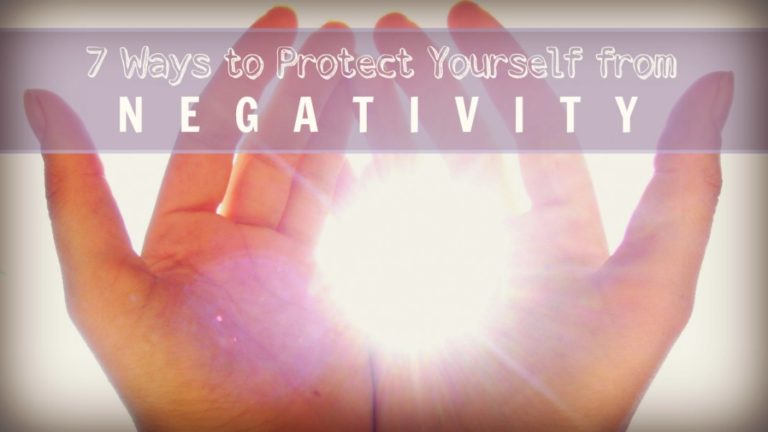The Meaning of Life Experiment; The Age When You’ll Find Purpose

The calendar has turned the page and we find ourselves facing a brand new year and decade. So many of us take this annual ritual as a signal to assess our life’s purpose and meaning. The very question of the meaning of life has captivated human existence from the very beginning, from philosophy to religion, to science, and metaphysics. But now a scientific study has determined the average age at which people say they believe they’ve found some meaning,
In a 2009 psychological test called “The Meaning of Life Questionnaire,” over 8000 participants displayed two very different scores – the first being how hard the participants felt they were searching for a sense of meaning, or purpose, and the second score showing whether the participants believe they’d found it. The results? The harder participants looked for meaning, the lower their happiness and life satisfaction were rated.
There is no one meaning per se; the meaning of life is both a universal and individual quest and one that is ever-changing. As researchers have discovered, the meaning of life is not a single, specific goal we aim to reach, but a continual striving that we fine-tune and evaluate, transforming as we grow and age.
Searching For Meaning in Life: The Secret to Aging Wisely
Our society is hyper-focused on all the ways we can stay young, from spending hours to the gym, eating the latest health food craze, undergoing plastic surgery, or even reprogramming our DNA. But what if the secret to aging well isn’t about turning back the clock, but instead embracing the wisdom that comes with aging with meaning? A group of psychiatrists at the University of California, San Diego are working to pinpoint the age humans are most likely to find one’s purpose or meaning in life and the results may or may not be surprising.
A cohort of over 1000 people, aged 21 to 100, was interviewed and the results show that we begin to feel our life has meaning by the age of sixty. In fact, according to the study, published in the Journal of Clinical Psychiatry, “the search for meaning is often at its lowest, and the ‘presence’ of meaning is at its highest.” When asked what constitutes meaning or purpose, researchers at the UC Berkeley’s Greater Good Science Center suggested that you cultivate the following:
- Positive self-image
- Authentic relationships
- Long-term, meaningful goals
- Contributing to society
- Community
- Engagement in creativity
- Reading books
- Gratitude
- Adaptability
- Altruism
Okay, Boomer: How Millennials Can Learn From Their Elders
When we’re younger, our lives are often looked at as a wide-open book; the world and all its possibilities seem vast and endless. This state of flux, from friendships to jobs, to where we live and how we make our way in the world, is this generation’s norm. These are the years where society expects us to be finding ourselves.
But at a certain point, society expects us to “settle down” in the form of a defined career, a stable relationship, etc. Does this stability translate into the search for meaning being over? Or is this very human desire to understand and live our purpose develop, shift, and transform as we age?
Scientists have discovered while the quest for purpose is natural, not finding it by a certain age can have detrimental impacts on our health and well-being. In other words, searching for the meaning of life is a natural and positive aspect of our lifelong developmental growth and can result in a higher index of connection, meaning or purpose, and health.
Intentionally striving for life’s purpose can be viewed as an advanced human ability, one that is deeply rooted in our patterns of life. Oftentimes, we focus on the negative patterns that might be inhibiting our personal growth, and while recognizing this is important, it’s also critical to take stock of the ways our inherent desire for meaning develops.

What are some of the secrets to finding meaning in one’s life as we age into our 40s, 50s, 60s, and beyond? Sometimes it’s as simple as establishing the rules for your own life or stepping outside of your comfort zone. This is why “60 is the new 40” is redefining aging because so many baby boomers are defying traditional ideas through second (or third) careers, healthy living, and living with the purpose that other generations can learn from.
While it might sound odd, incorporating the act of failing, especially as we age, can also heighten the sense of meaning in your life, as can consciously directing your energy to what brings you joy. These acts do many things, including developing and honing one’s sense of self-awareness and intuition, two key components of finding purpose in one’s life.
How Do You Find Meaning in Life: The Why of What We Do
One of the key life areas that receive the most energy in our search for meaning is in the work we do, or the career choices we make. From an early age we’re asked, “what do you want to be when you grow up?” and the focus on career-centric choices from high school to universities is pervasive.
But what if these questions were also asked – why do you want to be that, or how do you want your work-life to look like? Perhaps if we began asking those questions of younger people as they embark on their pre-career studies, the search for meaning in their life might be more focused, and yes, meaning-full.
Leading experts in the area of work and meaning agree that understanding the “why” of work can help to infuse our nine-to-five existence with a deeper sense of purpose. After all, we spend an inordinate amount of time in our work-life; one that is centered on a shared sense of purpose, personal growth, and positive engagement make going to work all the more meaningful and lead to being part of what authors David and Wendy Ulrich define as an abundant organization.
But what if work doesn’t define your life’s meaning? After all, the average working person can change jobs every three to four years and therefore have a number of careers over their working life. If this is you, focusing on the “how” of work can help to define life’s meaning, and can allow for a sense of autonomy in which work serves to support one’s larger purpose or creative endeavors.
Finding Your Way Toward Meaning
Many are overwhelmed at the idea of finding meaning in their life; they feel it is beyond their budget, or time, or lifestyle. However, as the saying goes, the journey begins with one step. Try this simple mental exercise to help define what matters to you, adapted from acceptance and commitment therapy (ACT).
All you need is a piece of paper, a pen or pencil, and time for yourself. Create a list of the different areas of your life, such as relationships, jobs, education, spirituality, health, family, and recreation. Using a scale from 1 (not important) to 5 (most important), evaluate each item on the list as to the level of importance it holds for you.
After you’ve defined two or three most important things on your list, take some time to write out your relationship to those items and how you would like to find more meaning in them. It’s important to take your time with this exercise – remember, Rome and the meaning of your life weren’t built in a day and the cultivation of patience is one of the most critical parts of discovering, refining, and living with purpose. If writing is not your process, try sitting in stillness while listening to any of the many free guided meditations available online.
Writing not your thing? Try Ashok Gupta’s “Meaning of Life” free meditations, ten and twenty minute guided apps and daily teaching videos that can help support one’s search for a purpose by relaxing the listener’s nervous system. Gupta is the creator of the Gupta Program for Health and Happiness, a neuroplasticity training program for those living with persistent health and well-being issues including fibromyalgia, anxiety, chronic fatigue and more. Gupta has expanded this program, which has assisted those suffering from these conditions achieve a better quality of life and applied it to the search for a more meaningful life itself.
Finding Purpose; The Truest Expression of Being Human
The study exposes a paradox in how we search for meaning and suggests that a more subtle approach could be the answer. Psychiatrists define this as the presence of meaning and the search for meaning. Chronically ill patients were studied over a period of time for how they successfully coped with their ongoing health conditions. The study showed that those who experienced what can be viewed as having a positive presence of meaning had a higher quality of life than those who were in a constant search for meaning.
Rather than making the search about finding meaning, experts have turned to Viktor Frankl as a model for how to live a life of meaning. Frankl, a World War II Holocaust survivor, wrote extensively on how he was able to emerge from the horrific experience that took the life of so many, including his wife and mother. He realized that focusing on finding meaning and purpose was the antidote to suffering and became his life’s mission — to help others discover their purpose, through finding beauty, and engaging in meaningful relationships and endeavors.
Frankl’s model, as well as many others, have provided important life lessons — that by consciously choosing to live with purpose and meaning we not only improve the quality of our lives, but of those around us. The Buddha is quoted as saying, “your purpose in life is to find your purpose and give your whole heart and soul to it.” It seems to be a very worthy resolution as we enter into 2020.
7 Ways to Protect Yourself from Negativity

At some point in your life, you’ve encountered a negative person. It may be that you have a negative person in your life at this very moment, whether it be a spouse, family member, co-worker, friend or even a stranger. An encounter with a negative person can be emotionally taxing. These people can imprint their negativity onto you in such a way that may leave you feeling sad, angry, afraid, or completely drained of energy. However, it doesn’t have to be this way.
As there are many reasons behind a person’s negativity, there are also many ways to protect yourself from that negativity.
There is a well-known idea that our thoughts are responsible for creating our reality. The more I thought about this, the more I saw the actions of negative people in a much different light. I started to think that it isn’t the negativity of the people that are bringing me down and draining my energy, but rather how I allow their negativity to affect my life. What I found is, by not allowing the negativity of others to impact me, the less I experienced, because I no longer attracted it.
Everyone is responsible for his or her own actions. It’s the negative person’s choice to be negative, just as it’s your choice of how you respond to the negative person. If someone says something negative to you, whether it be discouraging you on your goals and dreams, saying something disrespectful, or even making you feel less than what you really are, your first impulse may be to feel hurt, angry, or perhaps a sudden hatred toward that person. All of those are negative reactions, which subliminally enhances the negative person even more. Our bodies are reactors that radiate and transfer energy onto others. Even if we don’t verbally respond to the negative person, we still absorb their negativity into our psyche. Here are seven ways we can deflect the negativity and protect our own emotional well-being:
Use the Power of Affirmations
During a negative encounter, say to yourself, “I choose not to allow this person to impact me in a negative way.” Imagine a beautiful white light surrounding you as it creates a barrier to prevent the negativity from seeping through.
Know That You Are Not At Fault
If the negative person is making you feel discouraged or not worthy, know it’s no fault of your own. Usually, when one attacks our dreams, desires, goals, and ambitions, it’s a sign that they’re not where they want to be in their own lives. Instead of allowing them to transfer negativity onto you, try talking to them about why you want to pursue what you’re doing and even encourage them to reach for the stars, too.
Send a Loving Thought
We may have a random encounter with a stranger who has an unpleasant attitude or could’ve had a bad day and is taking it out on anyone they can. (Unfortunately, that person happens to be you.) Before engaging the person, imagine the beautiful white light barrier and silently use the affirmation, “I choose not to allow this person to impact me in a negative way.” This prevents absorbing the negativity the person is emitting.
Smile, be friendly, and stay calm. Sometimes, that’s all that’s needed to stabilize their mood. When the person is no longer in contact with you, silently send a loving thought to them hoping that their day will become better.
Think Something Positive
Often, an encounter with a negative person will leave lasting effects long after the initial encounter. Perhaps something happened with a person at the start of the day that really made you angry. As your day goes on, you keep thinking about it over and over again. You’re upset, and you can’t shake it from your mind. It’s these particular types of encounters that leave one feeling the most depleted of energy because the situation is on instant replay.
I’ve found the best solution is to shift the mind. If you keep dwelling on that negative moment, immediately think of something positive: something or someone that brings you joy, like a loved one, a pet, nature, a favorite movie or a hobby.
Trigger the Brain
Shift your train of thought by thinking about what happened in the last chapter of a book that you’re currently reading, or by mentally reciting the lines to a favorite song. This causes the brain to divert its attention and keeps the negative thoughts at bay.
Silence the Ego
You may feel the urge to fight or argue with the negative person. Perhaps you think that you’re right and they’re wrong, or you’ll feel better by standing your ground. It’s actually combat of the ego-mind: in most circumstances it only makes you feel worse, as all it does is fuels the fire for the other person. When they sense your anger, they feed off it by taking your energy. This gives them more power and leaves you feeling drained.
Withdrawing from an argument doesn’t make you weak, and you don’t need to prove you’re right. Ask yourself, “Do I want to be right or do I want to be happy?”
Remove Yourself
Simply say “I’m sorry you feel this way.” If possible, either walk away or leave the room. Once out of sight, silently send loving thoughts to the person. You don’t have to absorb their anger. Dismiss it and let it go. Usually, the argument will naturally dissipate.
If these practices sound too easy, it’s because they are! The human mind thinks that every solution needs to be complex in order for it to work. Far too much time is spent thinking and searching for the correct way to solve negativity (or anything in the world, for that matter), when in fact each of us is made up of the very ingredients of a solution.
That solution is love. Radiate love. Be love. Love is what ultimately heals us all.
There will always be negativity in the world. It’s the Yin and Yang of life. If someone doesn’t like or agree with something that you did or would like to do, then that’s their conflict, not yours. What they think is right may not be right for you, and everyone’s entitled to their own choice. No matter how negative the opinions of others are or how you may be perceived by them, know this: you’re a beautiful, magnificent being and you’re so loved – and that’s the absolute truth.





































